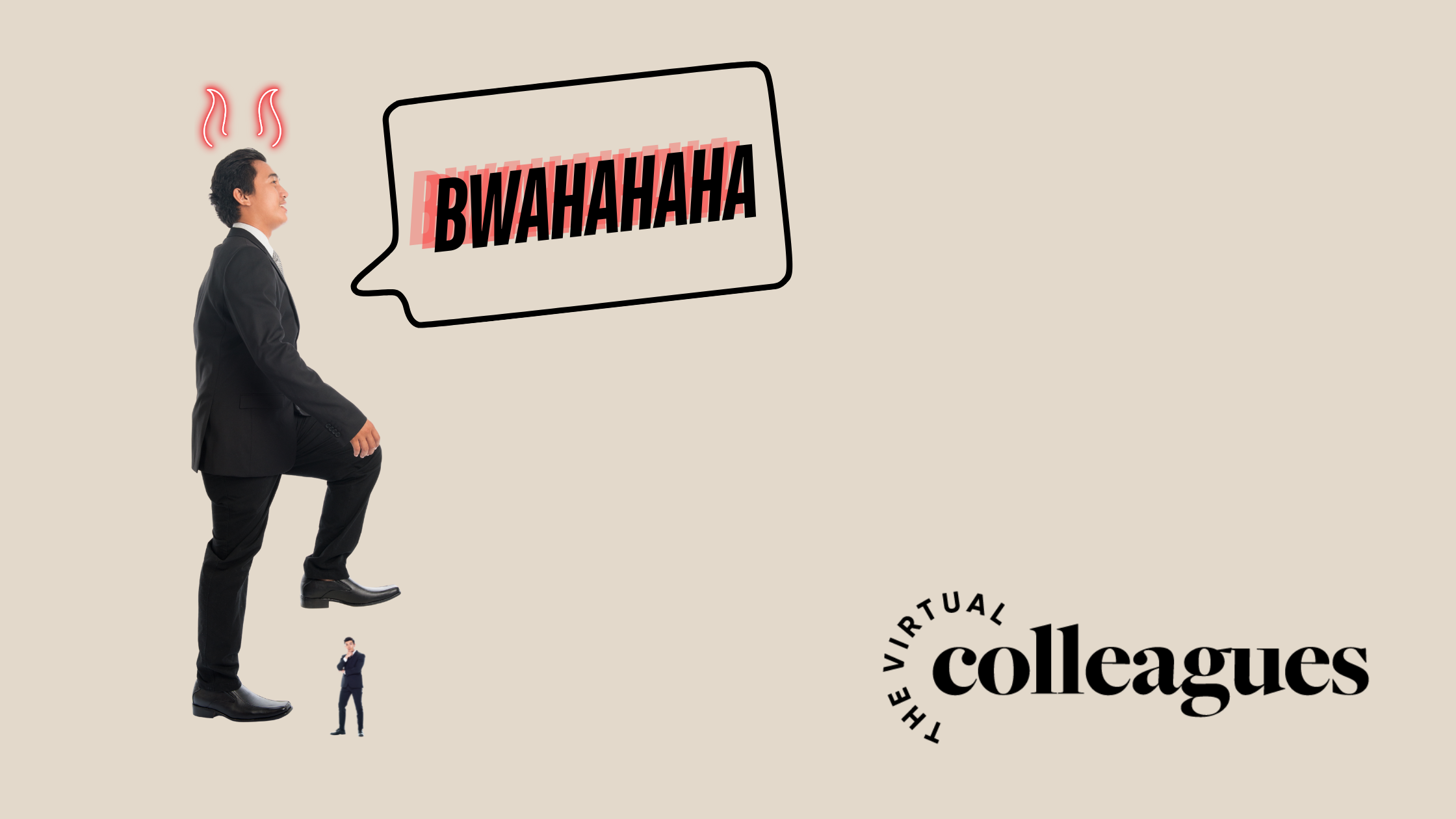The Truth About Why Business Owners sometimes Get Branded ‘Psycho’
Behind Every ‘Psycho’ Business Owner Is Just Someone Trying to Keep It Together
In one of our recent team calls, we had the big, and potentially uncomfortable conversation about why business owners often get branded with some pretty harsh labels. “Narcissist.” “Control freak.” “Reckless.” “Cold-hearted.” And the worst of all: psycho.
It all started with a Netflix binge (obviously). A documentary about the OceanGate sub disaster, followed by one on a dodgy life coach — both featuring founders who were building something big but ultimately portrayed as dangerous, delusional, or downright mad. Now we are not defending their behaviours, or disagreeing with the portrayal, but it got us thinking about the wider stereotype of business owners being ‘psychos’.
I want to ensure I make it clear up front, that we all wholeheartedly disagree with this notion.
We started by exploring the most common labels, and what is actually behind them.
The Traits We Get Labelled With (and What’s Actually Going On)
We cracked open the usual list of “red flag” behaviours and asked: what’s behind them?
Risk Taking: Vision. The courage to leap when others stall.
Reckless: Fast-paced decision-making built on deep intuition.
Unpredictable: Wearing 20 hats, 50 tabs open, juggling the unexpected and operating in a world where we have to shape-shift.
Demanding: High standards. Laser focus on goals.
Needing Reminders to Be Human: Deep in the work. Often forgetting basic self-care.
Boundary Issues: Blurred lines between being driven and burnout.
Ego-Driven: Confidence mistaken for arrogance.
Polished/Composed: Self-preservation and professionalism.
Manipulative: Strategic thinking misunderstood.
As Hadassah perfectly said: “Every trait has a positive and a negative. It’s about perception.” And unfortunately, when you’re the one steering the ship, people don’t always look beneath the surface.
We also explored how sometimes as business owners we have to ‘fake it until we make it’ – We have to sound positive and upbeat when we don’t sometimes feel like it, because who wants to work with someone that is negative, and not doing well. – So this steered the conversation to explore where authenticity comes in? Does ‘pretending’ contribute to our negative labels?
Is It Authenticity or Just Acting the Part?
One of the biggest traits that gets labelled as “psycho” is delusion. The idea that you’ve lost touch with reality. But let’s flip that — maybe we’re just visionary. Maybe we believe in something that hasn’t happened yet.
We talked about how business can feel like a performance. Those moments you’re writing upbeat LinkedIn posts, but behind the scenes rocking in your office chair wondering how the hell you are going to pay the mortgage. – Is that performing? Delusion? Or just doing what you need to do.
Most business owners are shape-shifters. Adaptable. Chameleons depending on the room, the season, or the stage of growth. But that constant shifting? It can make authenticity feel like a luxury.
We’re told to “be real,” but also to be polished. To shout about our wins, but don’t be too showy. To be confident, but not cocky. It’s a constant identity juggle. And if we do “fake it until we make it,” we risk being seen as disingenuous.
The truth is, that polished post you saw online or the big smiley energy on the networking call, is probably not completely 100% authentic. But if someone writes a post about how shit they feel, or how they don’t believe in themselves, or if they showed up to a networking call and burst into tears telling the room how they hate their business – then that’s not going to encourage people to want to work with you.
We are not delusional, or being fake. We’re just trying to survive in a world that rewards performance.
Nature vs Nurture — Are Business Owners Born This Way?
We explored whether the personality traits of a business owner is something we are born with, or whether we become this way because life gave us no other choice?
Is it something in our DNA — that natural desire to rebel, to create, to lead? Or is it a reaction to a dodgy boss, a toxic job, or a world that didn’t quite fit us?
Probably all of it.
Some of us have neurodiversity and operate in a way that is not considered ‘the norm’ and so we create our own world that works for us. Some of us had no safety net, no other option, or perhaps just a point to prove. Either way, it takes someone special to leap into business ownership — and it’s not madness. It’s courage.
And Then There’s Money…
How does money change the way we behave? How can this contribute to ‘those labels’.
Nicola brought up a powerful point: “When you don’t have money, you have to have grit.”
If you’ve got capital behind you, you get to be the visionary. You can hire, outsource, delegate. But if you’re bootstrapping? You are the team. You’re the marketer, the ops manager, the tea maker, and the person updating the website at 11pm.
That pressure sometimes shows up in what is perceived as a negative behaviour. Such as prioritising the business over people.
We’ve all bent our own rules, dropped rates, said yes when we shouldn’t have out of compassion for someone else.
But over time? That chips away at your confidence and your margins.
Saying no, prioritising margins, and making decisions based on what is best for the business – that’s just being strategic. It isn’t heartless or cold. It’s survival. And setting boundaries? That’s not being horrible or difficult. That’s how you make it to next month.
Let’s face it, if we don’t make decisions for the good of the business, then there wont be one. Why is that basis for making decisions seen as ‘cold’ or selfish?
Final Thoughts: We’re Not Psychos — We’re Just People Trying
Being a business owner means carrying a lot. Pressure. Perception. Passion. People. We make decisions fast. We juggle ten things at once. We care, deeply. But we’re also trying to stay upright while building something we believe in.
So next time someone tells you you’re “intense” or “too loud” — take it as a compliment. You’re probably just doing your job properly.
And if you’re reading this then please know:
You’re not broken. You’re not mad. You’re not a psycho.
You’re just navigating ambition, overwhelm, expectations, and survival — and doing your best.
But remember: you don’t have to do it all alone.
If you’re stuck in reactive mode, juggling too much, dropping balls, or just starting to feel like you’re losing the version of yourself you actually like — maybe you don’t need a mindset shift.
Maybe you need a bit of help.
A kind, non-judgy VA could be the first step to going from reactive to strategic, from burnt out to back on top. Someone who sees you, gets it, and can help you move from chaos to calm — while keeping your humanity and ambition firmly intact.





